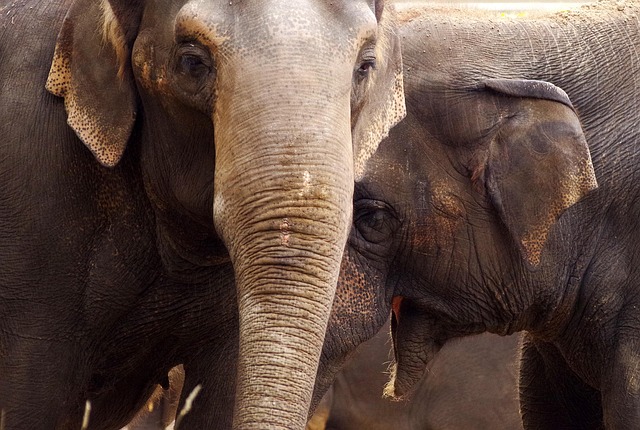Elephants are intelligent animals with complex social lives and behaviors. Their impressive cognitive abilities are rooted in their highly-developed brains, which are among the largest and most complex of any land animal. In this article, we’ll explore the inner workings of the elephant brain and how it enables these majestic creatures to think, problem-solve, and navigate their environment.
The Anatomy of the Elephant Brain

The elephant brain is divided into several distinct regions, each with its own set of functions. The largest region is the cerebrum, which is responsible for consciousness, thought, and perception. Elephants also have well-developed hippocampi, which are associated with memory and spatial navigation, and a highly-developed olfactory bulb, which allows them to detect and interpret a wide range of scents.
Problem-Solving Skills

Elephants are known for their impressive problem-solving skills, which they use to navigate their environment and interact with other members of their herd. They are able to use tools, remember past experiences, and adapt to new situations in order to solve problems and accomplish their goals. For example, elephants have been observed using sticks and branches to scratch hard-to-reach areas of their bodies or to swat at flies.
Social Intelligence

Elephants are highly social animals and are able to recognize and remember other members of their herd, even after long periods of separation. They use complex vocalizations and body language to communicate with each other and coordinate their activities. They are also able to empathize with other elephants and show concern for their well-being, which is a sign of their emotional intelligence.
Memory and Learning

Elephants have excellent long-term memories and are able to remember past experiences and locations. They also have a high level of learning ability, which enables them to quickly adapt to new situations and learn from their mistakes. For example, elephants are able to remember where they found water in the past and will return to these locations when they need to drink.
Elephant Brain Size and Intelligence

The size of an animal’s brain is often used as an indicator of its intelligence, and elephants have one of the largest brains of any land animal. However, brain size is not the only factor that determines intelligence. Elephants also have a highly-developed cerebral cortex, which is responsible for higher-level thinking and problem-solving. This, combined with their excellent memory and social intelligence, makes them one of the most intelligent animals on the planet.
Conservation Implications

The intelligence of elephants has important implications for their conservation. Elephants are threatened by habitat loss, poaching, and human conflicts, which can have a significant impact on their social and cognitive abilities. Efforts to protect elephant habitats and promote responsible tourism can help to ensure that these animals are able to continue to thrive and use their remarkable brains to navigate their complex and changing environment.
Conclusion

In conclusion, the elephant brain is a complex and fascinating structure that allows these intelligent animals to think, problem-solve, and navigate their environment. Their social intelligence, memory, and learning abilities, combined with their large brain size, make them one of the most impressive and intelligent animals on the planet. Understanding the inner workings of the elephant brain can help us to appreciate and protect these amazing creatures for generations to come

